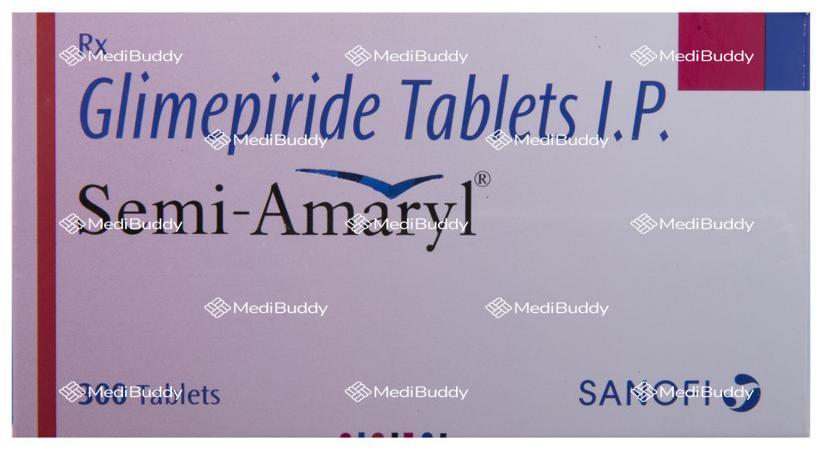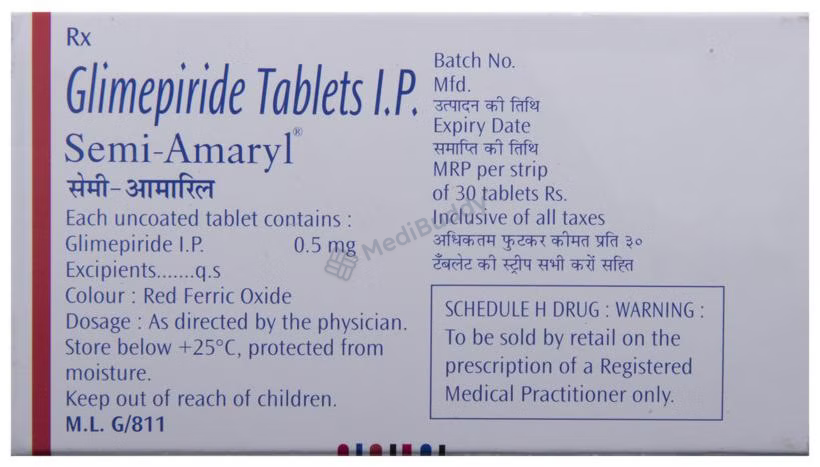Semi-Amaryl Tablet
By Semi-Amaryl
Rx
30 Tablet in a Strip

Composition
Glimepiride(0.5mg)

Manufacturer - Sanofi India Ltd
Sanofi House, CTS No.117-B, L&T Business Park, Saki Vihar Road, Powai, Mumbai 400072

Expires on or after
April, 2026

liver
Caution should be taken when using Semi-Amaryl Tablet in individuals with liver disease. It may be necessary to adjust the dosage of the medication. Patients are advised to consult their doctor regarding the use of Semi-Amaryl Tablet. However, the medication is not suitable for individuals with severe liver disease as it can lead to significantly low blood sugar levels, which may normalize over time. It is important to note that Semi-Amaryl Tablet is not recommended for patients with liver dysfunction, as it could potentially cause liver damage. Remember to seek advice from a healthcare professional before starting Semi-Amaryl Tablet if you have any liver concerns.

kidney
Semi-Amaryl Tablet should be used carefully in patients with kidney disease. Dose adjustment may be necessary, so consult your doctor. Avoid in severe kidney disease as it may lead to low blood sugar levels. Consult a doctor if you have kidney dysfunction before taking Semi-Amaryl Tablet.

alcohol
It is not safe to consume alcohol with Semi-Amaryl Tablet. Mixing alcohol with this medication can affect the blood sugar-lowering effects of the tablet in a way that may be harmful.

driving
Caution Driving may be affected by blood sugar levels. Avoid driving if experiencing low or high blood sugar symptoms while using Semi-Amaryl Tablet. Not recommended for individuals with fluctuating glucose levels, as it can impair focus and reaction time, posing risks while driving or operating machinery.

pregnancy
Semi-Amaryl Tablet may not be safe for use during pregnancy. Limited human studies suggest potential harm to the baby. Your doctor will assess the risks before prescribing. It is classified as Pregnancy Category C, so consult your doctor and discontinue use before delivery.

breastfeeding
Semi-Amaryl Tablet is not recommended for breastfeeding mothers as it may pass into breast milk and potentially harm the baby by causing low blood sugar. Monitoring the infant's blood glucose is advised if the mother is on Semi-Amaryl Tablet therapy.
| Habit Forming | No |
| Chemical Class | Third-generation Sulfonylurea Derivative |
| Therapeutic Class | ANTI DIABETIC |
| Action Class | Sulfonylureas (Insulin Secretogogues) |
₹172.9
Inclusive of all taxes
Content verified by

Dr. Mansi Chaudhari
MBBS - General Medicine
Last update on 01-Oct-2024










